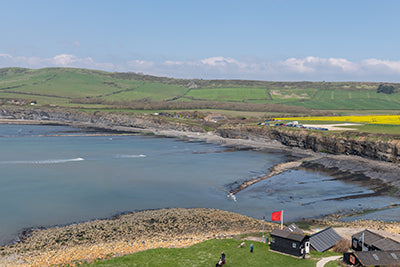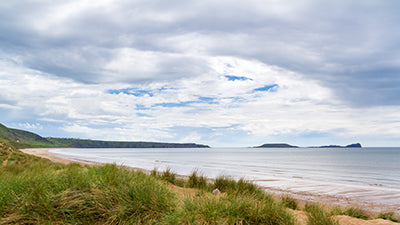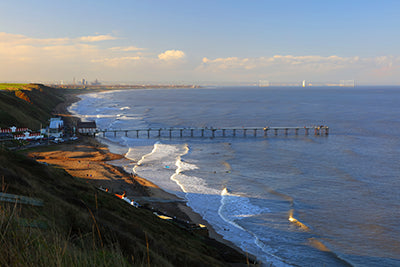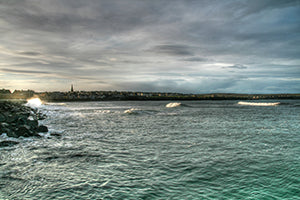You have no items in your shopping cart.
0item(s)
£0.00
0 item(s)
View cart
You have no items in your shopping cart.
You have no items in your shopping cart.
You have no items in your shopping cart.

Due to the shape of the bay and the headland of St Ives which blocks some of the swell, this end of Hayle is often smaller than the breaks further up towards Gwithian and Godrevy.
If the surf is looking too small on the webcam, consider heading further up the bay where there is more exposure to the swell or make the trek over to Porthmeor which also has great swell exposure and offers protection from W/SW winds.



The go-to wave on the south coast that may not be your final destination but it’s usually the first place to check. Picks up a reasonable amount of swell but it needs to be coming from a southerly direction to hit the bay head on.
Its offshore with a N/NE wind and the western corner has a little extra shelter. A great quality wave when the conditions are right and can offer fast hollow waves, works on all tides but it's usually best on a high tide.
Praa can get extremely busy because it is the most accessible spot on the south coast but there are more spots nearby if you are willing to drive around.

A relatively small beach at high tide but when the tide goes out it opens up into a much bigger beach with lots of peaks. Can get extremely fast and hollow on a low tide, makeable barrels are always a possibility but so are heavy wipeouts.
Picks up lots of swell and faces NW, best with a SE wind. Prone to closing out if the sand banks are bad or if it’s too big, be careful not to get caught out by the rising tide here.
Porthtowan is a surprisingly powerful wave when it gets above overhead it also has an extremely unforgiving impact zone which is often difficult to navigate, not recommended for inexperienced surfers when it is pumping.

Due to their exposed positions Sennen and Gwynver often pick up the most swell in west Cornwall and its typically bigger here than anywhere else. It’s a bit of drive and a good hike but the scenery and the waves are well worth it.
It works on all tides but the conditions are at the mercy of the shifting sand banks which can change one day to the next. When it’s on - its classic with peeling left and right barrels in crystal clear water. As the bay tucks into the south the waves get smaller so you can find shelter if it’s too big.
Ideal wind direction is SE/E but the further south towards the town you head the more wind protection you will get.

Fistral is one of the most consistent beach breaks in Cornwall offering fast hollow high-performance waves that work on all tides. Fistral is the home of the annual WQS Boardmasters surf competition and music festival, which take place in early August.
Fistral is also home to the famous big wave spot the Cribbar which breaks off the headland over a nasty rock reef. Waves can easily reach up to 20-30ft here, only recommended if you are an experienced big wave surfer... or insane
Newquay offers a variety of more sheltered spots when things are a bit too big and windy.

A popular beach that can get very busy in the summer months. Polzeath is your classic beachbreak set up offering waves for all abilities through all stages of tides, although the beach gets much smaller at high tide.
Polzeath picks up a decent amount of swell and is generally considered a softer and gentler wave as such it's a very popular spot for beginners. Polzeath offers plenty of local amenities and parking is not a problem.

On it’s day Croyde in North Devon is one of the best beachbreaks to be found anywhere in the UK, Croyde offers fast hollow waves that can pack a serious punch especially on low tide. Croyde faces due west and is offshore with an easterly wind, it has good swell exposure although it tends to be a bit smaller than similar beaches in Cornwall.
Croyde is a challenging wave when its pumping and as such is not the best place to learn the ropes if you are a complete beginner. Can get very crowded.

Woolacombe is a popular beach in North Devon with lots of space and fairly consistent surf. Woolacombe is a classic beachbreak with punchy peaks that work through all stages of the tide.
Woolacombe links up with Putsborough in the south which is typically smaller but offers better protection from South Westerly winds
Prone to losing size and power on a dropping tide.









Every delivery’s carbon footprint is calculated based on weight, shipping method, and distance traveled. We neutralize these emissions by purchasing verified carbon removal credits from groundbreaking projects.



With your purchase, you’ll join a community of proactive merchants and customers dedicated to a sustainable future. Together, we've removed emissions for over 74 million deliveries and removed over 52 thousand tonnes of carbon.

We work with a network of pioneering carbon removal companies that have been vetted by the commerce platform Shopify.

| Product | Price | Quantity | Actions | ||
|---|---|---|---|---|---|
| Features |
| Availability: |
| Price |
| Options |
| Actions |


